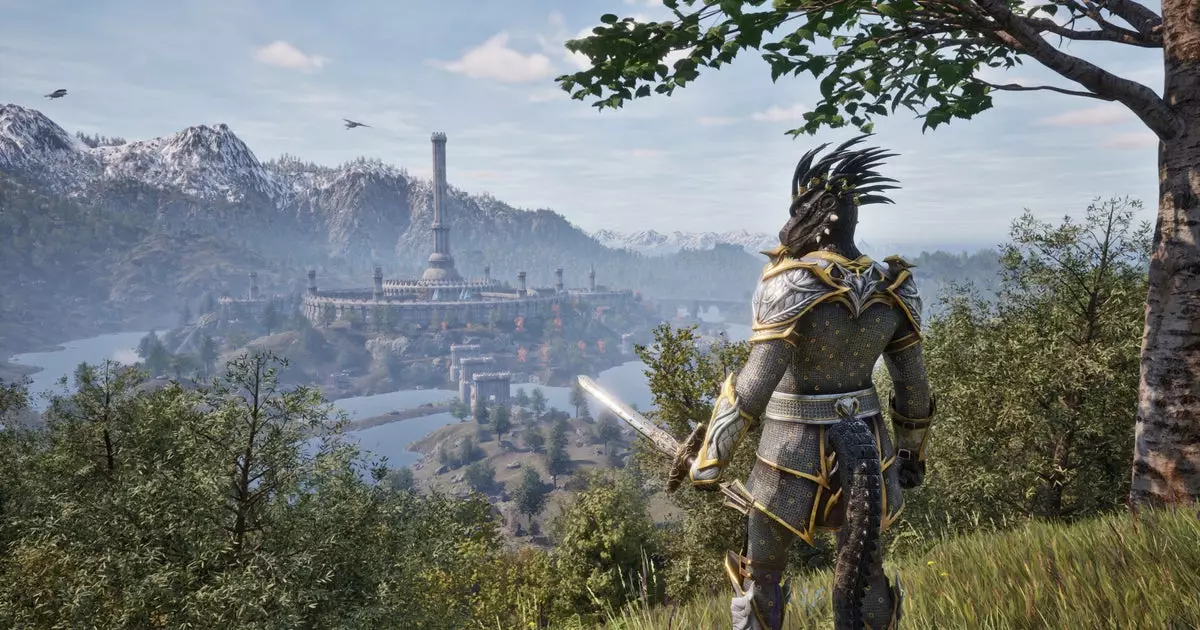The world of video game modding has always been an arena of boundless creativity and resourcefulness. The recent surprise announcement of *The Elder Scrolls IV: Oblivion Remastered* by Bethesda serves as a testament to the agility of the modding community. Despite the lack of official mod support, passionate fans have jumped headfirst into this opportunity, unleashing a slew of mods that have already reached over 90 within just a day of the remaster’s release on one prominent platform. What does this say about the relentless spirit of modders? It highlights their innovative drive, unyielding in the face of limitations, continuously seeking to enrich their gaming experiences.
It’s fascinating to witness some of these veteran modders re-establish connections with older mods from the original game. Take, for instance, a mod from 2008 that allows players to access high-level armors at the start of the game, which, rather surprisingly, maintained compatibility with the remaster. This exploitation of legacy mods opens up a treasure trove of possibilities, further amplifying excitement within the community as players eagerly sift through aged archives to find hidden gems that can be transferred over to the remaster.
In-Depth Technical Adjustments
While the modding prowess displayed is nothing short of impressive, the process was not without its hurdles. For moders looking to breathe new life into the remastered version, an additional step is required: updating the ‘plugins.txt’ file within the game’s directories—a manual endeavor typically managed by a mod manager that is currently ineffective in the remaster environment. This need for manual adjustment encourages a more hands-on experience, aligning with the ethos that has perpetuated the modding community for years.
Interestingly, the feasibility of porting certain simpler mods—particularly those that augment visual aspects or swap models—has been confirmed. New assets need to be intricately woven into Unreal’s pitched paks, which act as containers for the game’s elements. However, more complex mods that introduce nuanced systems like character quests or significant gameplay alterations will demand additional time and effort to adapt effectively. It leaves fans wondering what groundbreaking modifications could be realized as external creativity seeks to blend seamlessly with the essence of Oblivion.
The Clash of Old and New
The remastered version has introduced a plethora of enhancements, such as revamped user interfaces, improved character movement, and entirely new sound effects. However, certain aspects of this remaster, such as the updated leveling system, have drawn mixed reactions from long-time fans eager to relive the nostalgically flawed experiences of the original game. While the absence of the infamous level scaling that was criticized for creating arbitrary difficulty spikes is indeed welcome, one cannot help but ponder whether it has stripped away some of the charm and character of Oblivion.
Furthermore, with modern graphics and the added touch of Unreal’s real-time lighting, the aesthetic of *Oblivion Remastered* feels more polished yet perhaps somewhat less authentic when compared to its predecessor. This has pushed some modders to create vibrant enhancements to rectify color saturation and boost visual fidelity, reigniting that fond memory of an engaging gaming world. Yet, one cannot overlook the growing list of mods designed to diminish the essence of the game; for example, the removal of carry weight restrictions. This deviation raises the question—does such a change undermine the spirit and experience of traversing the land of Cyrodiil?
Anticipating Future Innovations
As the modding community dives deeper into this remaster, there is anticipation brewing over what groundbreaking creations will surface. Sure, there are simpler alterations leading to practical adjustments in gameplay, such as removing weapon repair requirements or skipping lengthy startup logos. But what truly excites me is the prospect of intricate quests, innovative character arcs, and thrilling challenges that could revel in the rich lore and worldbuilding that *The Elder Scrolls* series is known for.
As modders grapple with both the opportunities and restrictions brought forth by the remaster, each will ultimately forge their creative identity within this reimagined environment. There is something profoundly empowering about this collaboration between developers and fans that speaks to the heart of gaming culture—an inclusive landscape where creativity flourishes and voices are amplified through ingenious modifications. Without a doubt, the story of *The Elder Scrolls IV: Oblivion Remastered* is only just beginning, and the chapters written by its dedicated community of modders promise to be nothing short of thrilling.

